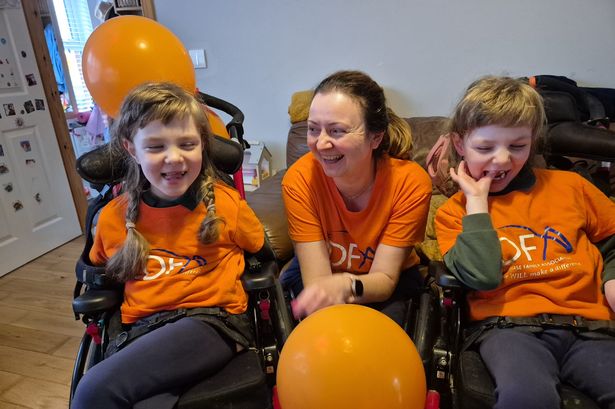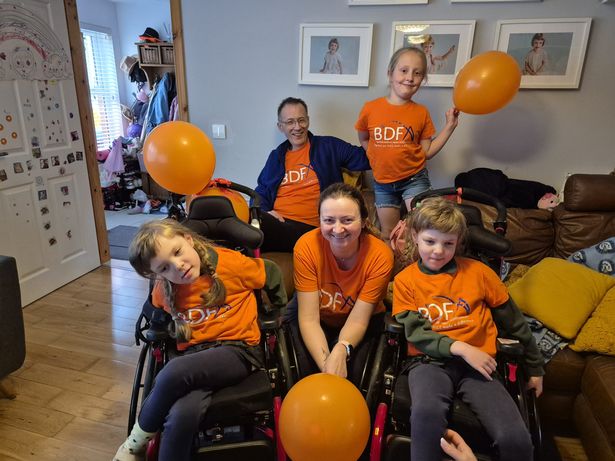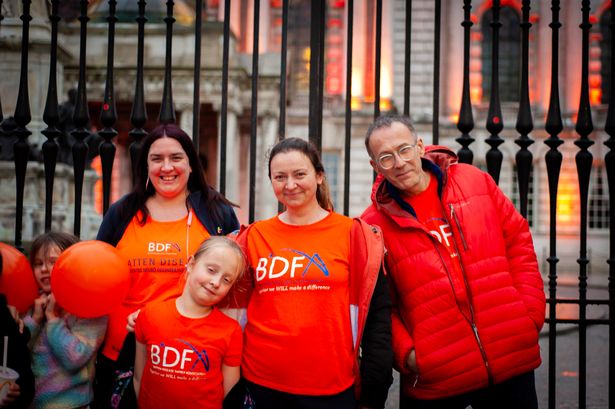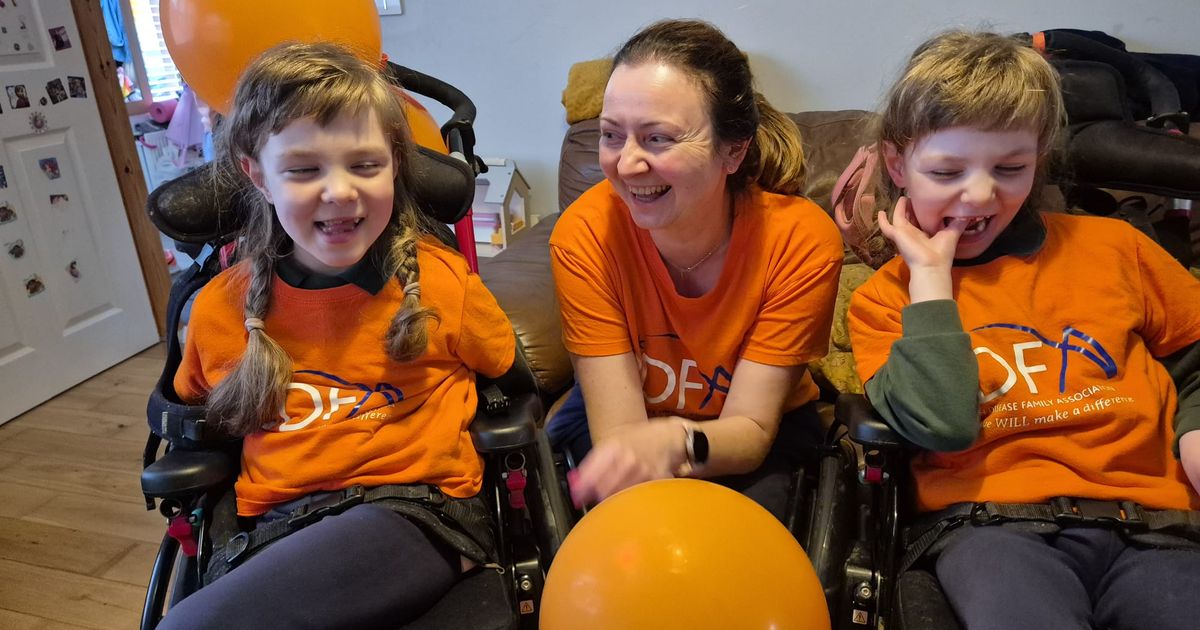Seven-year-old Lena and Nina will eventually become blind and bedridden before their lives are sadly lost to the cruel disease Marta with Lena and Nina (Image: Family photo)
Marta with Lena and Nina (Image: Family photo)
A Belfast mother of triplet girls has opened up on the rare genetic disorder that’s causing two of her daughters to lose their ability to walk, talk, or see.
Marta Walotka, a 44-year-old who lives in north Belfast with her husband Daniel and their children, described how two of her triplet daughters – identical Lena and Nina – were diagnosed with the incurable Batten Disease following genetic testing after they began to have seizures.
The condition causes childhood dementia and is degenerative, meaning Lena and Nina will eventually become blind and bedridden before their lives are sadly lost to the cruel disease.
Marta, who is originally from Poland, is calling for UK health authorities to overturn a decision last month to deny the life-extending drug to new Batten Disease patients.
Read more: Woman claims ‘series of failures’ led to elderly mother’s death at Belfast hospital
Read more: Employers told they should give women time off work for screening
She explained that while her seven-year-old girls will continue to receive the medication, known as Brineura, new patients will not. The draft decision to continue with the drug for existing patients, but cease provision for newly diagnosed children, was announced by the body responsible for judging the cost-effectiveness of medicines and making them available on the NHS, known as NICE (National Institute of Clinical Excellence).
A NICE committee meeting will be held next month, before a final decision is taken on Brineura.
Marta opened up to Belfast Live about the condition after a friend and carer for Lena and Nina announced she is to take on a hike from Portugal to Spain in aid of the Batten Disease Family Association, inspired by the seven-year-old girls.
“This is a very rare condition,” Marta said. “It’s a neurological disease that is taking away their abilities to see, to walk, to talk, to do general everyday life things that they need to do – and it’s slowly progressing and taking [more] away from them.”
The Belfast mum explained that while Lena and Nina are identical, their triplet sister Pola is not and is unaffected by Batten Disease. Marta said she began to notice developmental delays between the girls.
 Marta with daughters Lena, Nina and Pola and husband Daniel
Marta with daughters Lena, Nina and Pola and husband Daniel
“It was around, like, three years old that we noticed that they don’t talk that much as Pola,” she said. “They’re walking but not walking as well as Pola. But they still developed. You know, because they are of course triplets and they’ve been born premature, then you always have that in the background that ‘OK, they are premature babies they need more time to learn, more time to meet the milestone’.”
But when the girls began having seizures at the age of three, a genetic test carried out in 2021 would lead doctors to the Batten Disease diagnosis.
Marta described hearing the diagnosis via a telephone call from a doctor in Scotland as a “nightmare”, adding: “This is like, you know, it’s not real what they’re telling you. When you hear that, you start looking, you start reading up, you know, it’s like that.
“We started reading that there is no cure for that disease – no cure, nothing – but they started doing a trial for something, it’s called enzyme replacement therapy. This sort of like slows [the progression of the condition] down.”
The family were forced to fly over-and-back-again to London on a regular basis for the treatment, until a team could be trained locally in Belfast to administer the therapy.
Since then, the local community – neighbours, staff at the girl’s school and others in the area – has rallied to the family’s side.
 The Wolotkas with carer Orla Doherty (left), who is taking on a charity challenge to raise awareness, at Belfast City Hall on world Batten Disease awareness day June 9(Image: Family photo)
The Wolotkas with carer Orla Doherty (left), who is taking on a charity challenge to raise awareness, at Belfast City Hall on world Batten Disease awareness day June 9(Image: Family photo)
They have also been in contact with the Batten Disease Family Association charity, who has campaigned for access to Brineura for more patients.
“In March we went to London to protest around the Westminster because the girls were on the trial, and then the company and the NHS has to compromise and decide if they will cover the cost or if they will stop it,” Marta said. “Imagine if they stoped it for our girls? This means that the deterioration will go so fast, everything will go.”
Orla Doherty, from Coleraine in Co Derry, has been caring for the girls for several years.
“Every day I see their challeneges but their strength, positive light and unending laughter push them on,” she said.
Orla is now set to hike from Spain to Portugal to raise awareness of the condition, the need for Brineura to be made available to other children diagnosed with Batten Disease, and money for the Batten Disease Family Association.
Her online fundraiser can be found here.
For all the latest news, visit the Belfast Live homepage here and sign up to our daily newsletter here.
